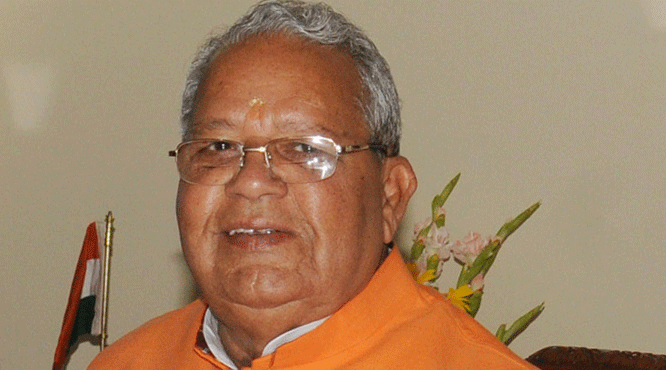Rajasthan governor Kalraj Mishra yet again bestowed on himself the power to set conditions for convening an Assembly session, returning the cabinet’s recommendation a second time, prompting chief minister Ashok Gehlot to write to the President to seek his intervention.
In a letter that betrayed unease about his position that has evoked widespread criticism, the governor on Monday said he was not in principle against calling the Assembly session but still did not give the go-ahead.
He asked whether a 21-day notice could be given to the MLAs and raised queries about social distancing and the agenda of the session.
Congress communications chief Randeep Surjewala taunted the duplicity: “Rajasthan governor’s constitution: 21-day prior notice for calling session. Madhya Pradesh governor’s constitution: Order at 1am at night to call session at 10am in the morning.”
While there are countless instances of sessions of Assemblies and Parliament being called without a 21-day notice, a recent example is that of Madhya Pradesh. Shivraj Singh Chouhan took oath as chief minister on March 23 after pulling down the Kamal Nath government and the notification for the session was issued that midnight. A brief session was held on March 24 to take the trust vote, which was adjourned the same day as the countrywide lockdown was announced.
Mishra suggested the notice could be shorter if the reason for the session was a trust vote and asked for it to be spelt out, but Congress sources said the cabinet was not required to list the agenda.
The Congress on Monday held demonstrations in front of all Raj Bhavans across the country, protesting the misuse of the constitutional office of the governor by the Narendra Modi government to subvert democracy.
Gehlot called up Prime Minister Modi on Sunday night to discuss the “governor’s conduct”.
On Monday, Gehlot wrote to President Ram Nath Kovind seeking his intervention.
Senior lawyer and Congress veteran P. Chidambaram told a news conference that the President can either convey his sentiments to the Union home ministry or directly call up the governor and ask him to follow the constitutional scheme.
Chidambaram said the issue of misuse of the Raj Bhavan has assumed “dangerous and monstrous proportions”.
“Governors appointed by the BJP since 2014 have repeatedly violated the letter and spirit of the Constitution. In the process, they have gravely impaired parliamentary democracy, its conventions and traditions. There are at least three landmark judgments of the courts when the governors concerned acted in gross violation of the Constitution in Arunachal Pradesh (2016), Uttarakhand (2016) and Karnataka (2019),” he said.
Chidambaram explained: “It is settled law that the governor shall act on the aid and advice of the council of ministers. The governor has no discretion — no discretion at all — in the matter. The questions that the (Rajasthan) governor had raised to stall the request were irrelevant and beyond his authority. If the executive government wants the legislature to meet, it has the absolute right and authority to call a session. The governor is only a formal instrument to sign and issue the summons to the MLAs. If a chief minister who is accused of not enjoying a majority wants to prove his majority, he is entitled to call a session at the earliest to prove his majority.”
The governor had last week returned the Gehlot government’s first recommendation for holding a session with some queries, which the cabinet replied to in its second recommendation asking for the session from July 31.
Three former Union law ministers — Kapil Sibal, Salman Khurshid and Ashwani Kumar — have written to the Rajasthan governor, advising him to stick to the rules and asserting that the “governor is bound to act on the aid and advice of council of ministers in convening the Assembly”.
“Any deviation from the established constitutional position would be an avoidable negation of your oath of office and will create constitutional crisis,” they wrote.











